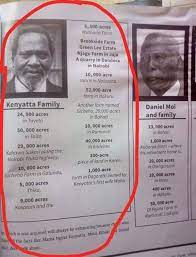President Uhuru Kenyatta may now have a leeway to borrow Sh3 trillion more after a House team adopted regulations setting the debt ceiling at Sh9 trillion.
The Committee on Delegated Legislation approved the regulations by Treasury Cabinet Secretary Ukur Yatani that now removes percentage of GDP as the determinant for the debt cap.
This means the country would no longer factor its debt caps on 50 per cent of the Gross Domestic Product (GDP) which is currently about Sh6 trillion in monetary terms.
The committee chaired by Uasin Gishu MP Gladys Shollei agreed that the clauses in the Public Finance Management (National Government) Regulations, 2015, in respect of the percentages be deleted.
Yatani sought that regulation 26(1) be amended by deleting the words “50 percent of Gross Domestic Product (GDP) in net present value terms”.
Critics pointed out the dangers of trend in which borrowed funds were being spent on recurrent expenditure — salaries and operations — instead of capital projects.
The country’s debt stands at Sh5.8 trillion, almost 300 per cent more than the Sh1.89 trillion Uhuru inherited from the Kibaki administration in 2013.
MPs were split on the committee’s report with other backing the proposal by the CS and other saying fiscal consolidation is critical compared with setting limits.
Wajir South MP Mohamed Mohamud said the debt ceiling cannot be set in an open-ended figure as proposed by the Treasury.
He argued that Kenya must not take a cue from developed countries that borrow from within their territories.
“We will be giving a blank cheque to our debtors. Our GDP growth has been sluggish hence the need for a safeguard for what the debt ceiling would be,” the MP said.
“The balance sheet of this country is going haywire. There is no debt equilibrium. I oppose this report until there is a clear cut cap,” Mohamud said.
But those in support said the fresh move now ends the debacle that has been experienced when the debt was grounded on percentages to the GDP.
Majority leader Aden Duale said the debt cap as proposed in the regulations was informed by a recommendation of the Budget Policy Statement of 2019.
“We are not doing anything out of place. We are implementing what the Budget team recommended in their report to this House,” the Garissa Township MP said.
“The BPS will go a long way in ensure we achieve the fiscal consolidation that envisaged the reduction of the share of the debt to GDP to 44 per cent,” he said.
Duale argued that the House approved the budget with a deficit of over Sh630 billion which the government cannot fund in the face of the current debt being at Sh5.8 trillion.
Suba South MP John Mbadi supported the proposal albeit with a condition that the Treasury instills discipline in the management of debt.
“Some of us have been uncomfortable with the percentage to the GDP as the determinant. We moved to a system where we set the upper limit to 50 per cent. The law has been violated as we speak. We did pass the budget for 2019/20, of which we told the Executive that we could allow them to borrow Sh635 billion for the year. But without amending this law, it is not possible to borrow even a shilling today,” Mbadi said.
He said the country must work on ways of ensuring the country’s debt is sustainable. “As the Budget committee, we will keep the Treasury on its toes to ensure they live by what is required of them in management of debt,” he said.
Kikuyu MP Kimani Ichung’wa dismissed assertions that the debt cap would be a blank cheque to the Executive saying the move would end the constant review on the caps.
“We may not break or even reach the Sh9 trillion. The absence of this limit would mean the government would tax Kenyans more. I think the government is being candid enough,” the lawmaker said.
He said the budget passed by Parliament would not be funded as the government cannot even borrow a shilling, having hit Sh6 trillion.
“The economy is bad because there is no liquidity in government and not because of debt. The government is not spending. These are the issues we are facing,” Ichung’wa said.
Suna East MP Junet Mohammed supported the recommendation to adopt the regulations saying the new system would be easily understood by Kenyans.
"We just need support to ensure that the monies being borrowed are spent prudently. Now that the war on corruption is on course, we need to have this regulation approved."









Comments